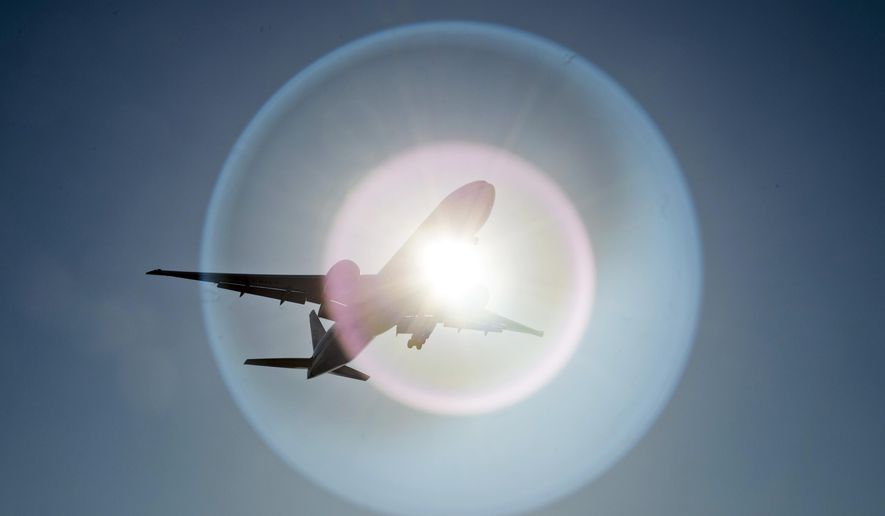The Trump administration said Wednesday it will suspend operations of all Chinese passenger airlines traveling to the U.S., citing similar restrictions imposed by Beijing in the midst of a tit-for-tat diplomatic war that has escalated sharply in recent days.
The world’s two biggest economies are clashing on multiple fronts, from ongoing trade disputes and the handling of the coronavirus pandemic to China’s looming crackdown on pro-democracy forces in Hong Kong.
The order — which applies to Air China, China Eastern Airlines Corp., China Southern Airlines Co., Hainan Airlines Holding Co., Sichuan Airlines Co. and Xiamen Airlines Co. Chinese — punishes Beijing for what U.S. officials said were violations of a pact that allowed frequent nonstop flights between the U.S. and China as bilateral trade grew.
The U.S. Transportation Department said Wednesday that China had violated the Air Transportation Agreement, and that Beijing has “impaired the operating rights of U.S. carriers and denied U.S. air carriers the fair and equal opportunity to exercise their operating rights.”
Until China relents, “we will allow Chinese carriers to operate the same number of scheduled passenger flights as the Chinese government allows ours.”
Delta Airlines said in a statement that the carrier “supports and appreciates the U.S. government’s actions to enforce our rights and ensure fairness.”
United Airlines spokesman Frank Benenati said in a statement, “We look forward to resuming passenger service between the United States and China when the regulatory environment allows us to do so.”
China’s Civil Aviation Agency in March said it was imposing one flight-per-week limits on foreign airlines in an effort to slow the spread of the coronavirus. Both airlines last month said they had hoped to resume more regular flights to China in June and have been encouraging Chinese officials to allow the carriers to restart service.
Before the coronavirus outbreak, over 300 flights were conducted between the U.S. and China. The bulk of airlines limited or suspended service amid the pandemic, but Chinese airlines continued to operate about 20 flights per week across the Pacific in February and more than 30 in March.
The two U.S. airlines are aiming to resume service to China in October, but it remains unclear how long the orders will remain in place.
Experts have cautioned that the move could exacerbate an already tense relationship between the world’s two largest economies.
The State Department outraged Chinese leaders last week by declaring that Hong Kong no longer has the legal and economic freedom that the Chinese government promised under its treaty with Britain that gave the former colony back to Beijing in 1997, setting the stage for possible new economic sanctions.
Chinese media accused Mr. Trump of hypocrisy with his sanctions over Hong Kong’s protests, citing the turmoil that has engulfed a number of U.S. cities in the wake of the killing of a black man in police custody in Minneapolis last month.
The department said President Trump could put the order into effect within two weeks, but some private analysts say the White House has yet to show it will impose serious real-world sanctions on Beijing or Hong Kong.
Mr. Trump “said that his administration would “begin the process” of eliminating various forms of “special treatment” in its relations with the United States,” Mr. Lardy wrote in a new analysis released Wednesday.
“But because exports to the United States of goods produced in Hong Kong account for only one-tenth of 1% of Hong Kong’s output, even if higher tariffs cut this flow entirely, the effect on the Hong Kong economy would be imperceptible.”
• Lauren Toms can be reached at lmeier@washingtontimes.com.




Please read our comment policy before commenting.